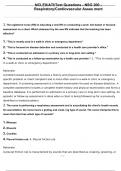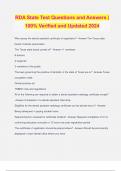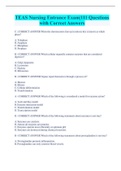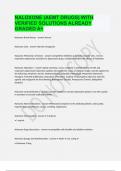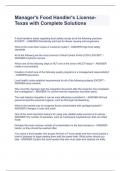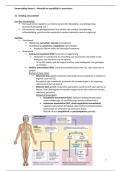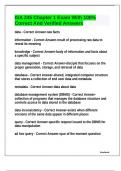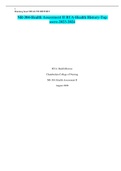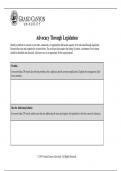Exam (elaborations)
NCLEX/ATI/Text Questions - NSG 200 - Respiratory/Cardiovascular Assesment
- Course
- Institution
NCLEX/ATI/Text Questions - NSG 200 - Respiratory/Cardiovascular Assesment 1. The registered nurse (RN) is educating a new RN on conducting a prob- lem-based or focused assessment on a client. Which statement by the new RN indicates that the teaching has been effective?
[Show more]
